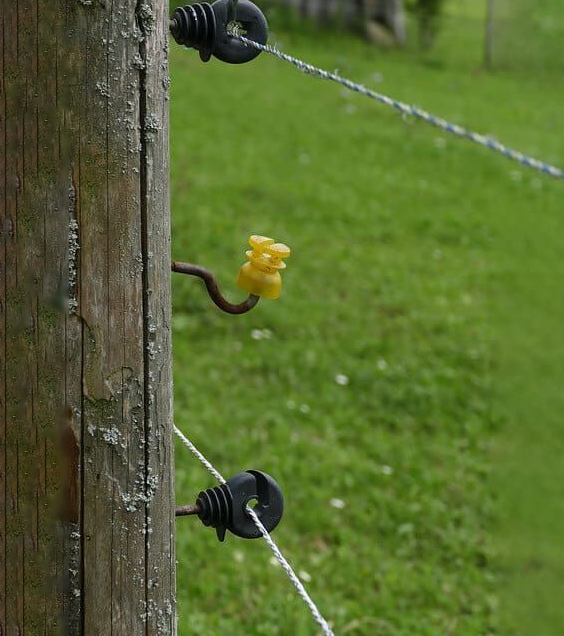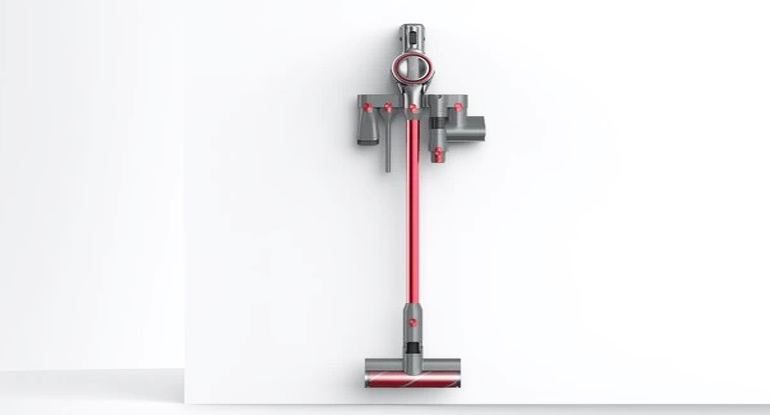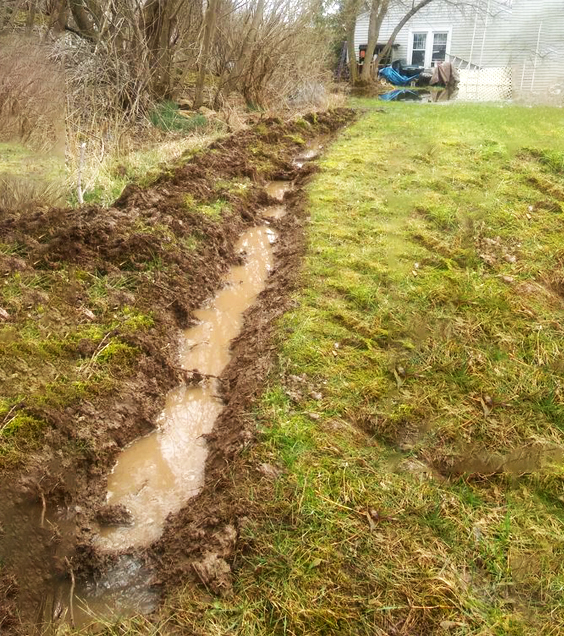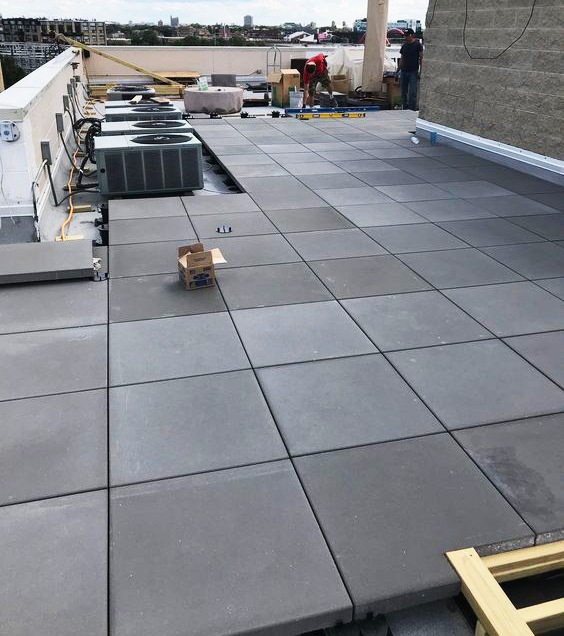What Are Electric Fences? Benefits, Uses, and Safety Tips

An electric fence is a type of fencing system that uses electrical shocks to deter animals or people from crossing a boundary. Electric fences are commonly used in agricultural settings to contain livestock or protect crops, but they can also be used for security purposes.
Electric fences work by delivering a high-voltage electric shock to anything that touches the fence. The shock is typically delivered through wires that are connected to a power source, such as a battery or an electrical outlet. When an animal or person comes into contact with the fence, they complete the electrical circuit, and a shock is delivered.
One of the main benefits of electric fences is that they are highly effective at deterring animals from crossing a boundary. Unlike traditional fences, which can be climbed over or dug under, electric fences deliver a painful shock that animals are unlikely to ignore. This makes electric fences a popular choice for farmers and ranchers who need to keep their livestock contained.
Electric fences are also relatively inexpensive compared to other types of fencing systems. The cost of materials and installation is often lower, and electric fences require less maintenance than traditional fences. Additionally, electric fences can be easily customized to fit the needs of a specific property or livestock species.
There are several different types of electric fences available, including permanent, semi-permanent, and temporary fences. Permanent electric fences are designed to last for many years and are often made of materials like high-tensile wire or steel. Semi-permanent electric fences are typically used for seasonal grazing or pasture rotation and can be easily moved from one location to another. Temporary electric fences are used for short-term applications, such as protecting crops during the growing season.
When installing an electric fence, it is important to follow safety guidelines to prevent injuries to humans or animals. The fence should be clearly marked with warning signs, and the power source should be properly grounded to prevent electrical shock hazards. Additionally, the voltage of the fence should be adjusted based on the size and species of the animals being contained or deterred.
Types of electric fence
There are several different types of electric fences available, each with its own unique features and benefits. Here are some of the most common types of electric fences:
- High Tensile Electric Fence - High tensile electric fences are made of multiple strands of wire, typically between four and eight. They are held taut by insulators attached to wooden or steel posts. The high tension in the wire is what delivers the shock to anything that comes into contact with the fence. This type of fence is commonly used for livestock containment.
- Mesh Electric Fence - Mesh electric fences are made of a metal mesh that is electrified. This type of fence is typically used for containing smaller animals like poultry or rabbits. The mesh size can be adjusted depending on the size of the animals being contained.
- Tape Electric Fence - Tape electric fences are made of a wide plastic ribbon that is electrified. They are lightweight and easy to install, making them a popular choice for temporary fencing. They are typically used for controlling livestock in a small area.
- Rope Electric Fence - Rope electric fences are made of a braided or twisted rope that is electrified. They are durable and long-lasting, making them a popular choice for permanent fencing. Rope electric fences are typically used for containing horses, cattle, or other large animals.
- Underground Electric Fence - Underground electric fences are buried underground, and a wire runs around the perimeter of the area being contained. This type of fence is typically used for containing dogs or other small animals. The shock is delivered through a collar that the animal wears.
- Solar-Powered Electric Fence - Solar-powered electric fences are powered by solar panels. They are a popular choice for remote areas where access to electricity is limited. The solar panels charge a battery that powers the fence.
The type of electric fence that is best for your needs will depend on several factors, including the type of animal being contained, the size of the area being fenced, and the level of permanence required. It is important to carefully consider these factors when choosing an electric fence.
Electric fence systems required components
Electric fence systems have become a popular and effective way to secure property and livestock. These systems rely on several components to function properly, from the fence wire to the fence charger. In this guide, we'll explore the essential components required for an electric fence system.
Fence Charger: The fence charger is the power source for the electric fence system. It delivers a high-voltage pulse to the fence wire or tape at regular intervals, creating a physical barrier that shocks any intruders who come into contact with it. Fence chargers come in a variety of types, including battery-powered, solar-powered, and AC-powered.
Fence Wire: The fence wire is the physical barrier of the electric fence system. It carries the electric current from the fence charger and delivers a shock to any intruders that touch it. Electric fence wire comes in a variety of materials, including steel, aluminum, and polywire.
Fence Posts: Fence posts are the support structures for the electric fence wire. They hold the fence wire in place and provide stability to the fence. Fence posts can be made of a variety of materials, including wood, metal, and plastic.
Insulators: Electric fence insulators are essential components that hold the fence wire away from the fence posts. They prevent the fence wire from grounding out and ensure that the electric current flows only through the wire. Insulators come in various types, including screw-in, pin-lock, T-post, and corner insulators.
Grounding System: The grounding system is a critical component of the electric fence system. It provides a path for the electric current to flow into the earth and back to the fence charger. Grounding rods, also known as earth rods, are typically made of copper or galvanized steel and are buried in the ground near the fence charger.
Warning Signs: Warning signs are required by law in many areas to warn people of the presence of an electric fence. They inform people that the fence is electrified and can cause harm. Warning signs should be placed at regular intervals along the fence line and should be clearly visible.
Electric fence systems require several components to function properly. The fence charger, fence wire, fence posts, insulators, grounding system, and warning signs are all essential components that must be installed correctly to create an effective and safe electric fence system. By ensuring that all these components are in place, property owners can protect their assets and livestock while also adhering to local regulations.
Electric Fence Chargers:
Electric fence chargers, also known as energizers, are the devices that provide power to the electric fence. The charger converts the electrical power from an AC (alternating current) or DC (direct current) power source into a high-voltage, low-amperage pulse that is delivered to the fence. The pulse is what delivers the electric shock to animals or humans that come into contact with the fence.
There are three main types of electric fence chargers:
- AC-Powered Chargers - These chargers are connected to a standard electrical outlet and convert the AC power to DC power. They are ideal for permanent electric fence installations and are generally more powerful than battery-powered chargers.
- Battery-Powered Chargers - These chargers are powered by batteries and are ideal for remote areas where electricity is not available. They are portable and easy to move from one location to another. However, they need to be recharged or have the batteries replaced periodically.
- Solar-Powered Chargers - These chargers use solar panels to generate electricity to power the electric fence. They are ideal for remote locations where access to electricity is limited. They are also environmentally friendly and require little maintenance.
When selecting an electric fence charger, it is important to consider the size and type of animal that the fence will be containing, as well as the length of the fence. The charger should have enough power to deliver a shock that is strong enough to deter animals from attempting to cross the fence.
Electric Fence Posts:
Electric fence posts are a critical component of an electric fence system. They provide support for the electric fence wire, hold the wire in place, and help maintain the correct tension on the wire. There are several different types of electric fence posts available, each with its own unique features and benefits.
- Steel T-Posts - Steel T-posts are a popular choice for electric fence posts. They are durable and long-lasting, and they provide excellent support for the electric fence wire. They are easy to install and can be driven into the ground using a post driver.
- Wooden Posts - Wooden posts are a traditional choice for electric fence posts. They are relatively inexpensive and readily available. However, they are not as durable as steel posts and may need to be replaced more frequently.
- Fiberglass Posts - Fiberglass posts are lightweight and easy to install. They are durable and long-lasting, and they do not conduct electricity. They are a good choice for use in wet environments, as they do not rust or corrode.
- Step-In Posts - Step-in posts are designed to be pushed into the ground by hand. They are lightweight and portable, making them a good choice for temporary electric fences. They are typically made of plastic and are available in a range of colors.
- Pigtail Posts - Pigtail posts are similar to steel T-posts, but they have a loop at the top that is used to hold the electric fence wire. They are easy to install and provide excellent support for the wire. They are a good choice for use with high-tensile electric fences.
When selecting electric fence posts, it is important to consider the type of animal being contained, the length of the fence, and the terrain where the fence will be installed. The posts should be spaced at regular intervals to provide adequate support for the electric fence wire and maintain the correct tension.
Electric Fence Wire:
Electric fence wire is a key component of an electric fence system. It carries the electrical charge that delivers a shock to animals or humans that come into contact with the fence. There are several types of electric fence wire available, each with its own unique features and benefits.
High-Tensile Wire - High-tensile wire is a strong, durable wire that is designed to withstand the tension of an electric fence system. It is made of steel and is available in various gauges. High-tensile wire is ideal for large animals, such as cattle or horses, and for use in long fence lines.
Polywire - Polywire is a lightweight, easy-to-handle wire that is made of a plastic material that is coated with metal filaments. It is easy to install and does not require special tools. Polywire is ideal for use in temporary electric fences or for areas where it is difficult to install a permanent electric fence.
Polyrope - Polyrope is a thicker, more visible electric fence wire that is made of a plastic material that is woven with metal filaments. It is easy to install and provides good visibility, making it ideal for use in areas where animals may not be able to see the fence.
Aluminum Wire - Aluminum wire is a lightweight wire that is easy to handle and install. It is not as strong as steel wire but is a good choice for use in areas where rust or corrosion may be a problem.
Copper Wire - Copper wire is a good choice for use in areas where high conductivity is required. It is more expensive than other types of electric fence wire but provides excellent conductivity.
When selecting electric fence wire, it is important to consider the type of animal being contained, the length of the fence, and the terrain where the fence will be installed. The wire should be properly grounded to ensure that the electrical charge is delivered correctly.
Electric Fence Insulators:
Electric fence insulators are an essential component of electric fence systems. They are used to hold the electric fence wire or tape away from the fence posts, preventing it from grounding out and ensuring that the electric current flows only through the wire. In this article, we'll explore the different types of electric fence insulators and the benefits they provide.
Types of Electric Fence Insulators:
Screw-in Insulators: Screw-in insulators are designed to be screwed into wooden fence posts. They are made of plastic or ceramic material and have a screw thread on the bottom that allows them to be easily attached to the fence post. These insulators are ideal for permanent fence installations and are suitable for use with both electric fence wire and tape.
Pin-lock Insulators: Pin-lock insulators are designed to be clipped onto T-posts or other metal fence posts using a pin and lock mechanism. They are made of plastic or ceramic material and are suitable for use with both electric fence wire and tape. These insulators are easy to install and remove and are ideal for temporary fence installations.
T-post Insulators: T-post insulators are designed to fit onto T-posts and hold the electric fence wire or tape away from the post. They are made of plastic or ceramic material and are suitable for use with both electric fence wire and tape. These insulators are easy to install and provide a secure attachment for the fence wire or tape.
Corner Insulators: Corner insulators are used at the corners and ends of the fence where the fence wire or tape needs to be turned. They are made of plastic or ceramic material and are suitable for use with both electric fence wire and tape. These insulators provide a secure attachment for the fence wire or tape and ensure that it does not come into contact with the fence post.
Electric Fence Grounding System:
An electric fence grounding system is an essential component of an electric fence. It is designed to provide a safe and effective means of grounding the electric fence, which is necessary for the system to function properly and to prevent potential electrical hazards to people and animals.
The grounding system typically consists of a grounding rod or multiple grounding rods, depending on the size of the fence, that are driven into the ground near the fence. The grounding rods are usually made of copper or galvanized steel and should be at least 6 feet long.
The grounding rods are connected to the fence energizer through a wire, which completes the electrical circuit. The energizer sends electrical pulses through the fence wire, and when an animal comes into contact with the wire, the electrical pulse will flow through the animal and into the ground, completing the circuit.
It is important to ensure that the grounding system is properly installed and maintained to prevent potential hazards. The grounding rods should be installed at least 10 feet apart and should be driven into the ground to a depth of at least 3 feet.
Additionally, the grounding system should be checked periodically to ensure that the grounding rods are securely in place and that the connections are tight. A well-maintained grounding system will help to ensure the safe and effective operation of the electric fence.
Electric Fence Gate:
When designing an electric fence, it's essential to include a properly designed and installed electric fence gate. The gate is an important component of an electric fence system, as it allows for easy access to the enclosed area while still maintaining the security of the fence.
There are two main types of electric fence gates: standard gates and electrified gates.
Standard gates are designed like traditional gates, and they are typically made of wood, metal, or PVC. They are not electrified, and so they do not require any special components or wiring. However, they need to be installed with proper grounding to prevent any electrical hazards.
Electrified gates, on the other hand, are designed to work with the electric fence system. These gates are equipped with insulated handles that allow the user to safely open and close the gate without coming into contact with the electric current. They also have wires that connect the gate to the energizer, allowing the current to flow through the gate when it's closed, ensuring the continuity of the electric fence.
When installing an electric fence gate, it's essential to ensure that it's properly grounded and installed to prevent any electrical hazards. The gate should be securely attached to the fence posts and should have a proper latching mechanism to ensure that it remains closed when not in use. Additionally, electrified gates should be designed with proper insulation and have clear warning signs to alert users of the electric current.
Electric Fence warning signs:
Electric fence warning signs are essential components of an electric fence system. These signs are required by law in most places and serve as a safety precaution to warn people and animals of the potential electrical hazards associated with the fence.
Electric fence warning signs should be easily visible and placed at regular intervals along the fence line. They should be placed near gates, corners, and other areas where people or animals may come into contact with the fence. The signs should be made of durable material that can withstand the elements and should have clear, concise wording and symbols to convey the potential danger.
In general, the warning signs should include the following information:
The words "WARNING" or "DANGER" in bold, capital letters to draw attention to the sign.
A symbol or picture that depicts an electric shock, such as a lightning bolt or an electric fence graphic.
A statement warning people of the potential danger, such as "ELECTRIC FENCE - DO NOT TOUCH" or "HIGH VOLTAGE - KEEP OUT".
Contact information for the fence owner or operator, including a phone number or address, in case of an emergency.
It's important to ensure that the warning signs are placed at a height where they can be easily seen and read, even from a distance. Additionally, the signs should be well-maintained and replaced if they become damaged or worn over time. By providing clear and visible warning signs, you can help ensure the safety of both people and animals around your electric fence.
How much does it cost to electrify a fence?
The cost of electrifying a fence can vary depending on several factors, including the size of the fence, the type of electric fence being installed, and the cost of labor in your area. Here are some of the costs to consider:
Materials - The cost of materials will depend on the type of electric fence being installed. For example, a high-tensile electric fence may cost more than a mesh or tape fence. You will need to purchase fencing wire, insulators, posts, and a charger or energizer.
Labor - If you plan to hire a professional to install your electric fence, labor costs can vary depending on the size of the fence and the experience of the installer.
Charger/Energizer - The charger or energizer is the device that powers the electric fence. The cost of a charger will depend on the type and brand, but you can expect to pay anywhere from $50 to $500 or more.
Other Costs - Other costs to consider include grounding rods, lightning arresters, and other accessories.
Overall, the cost of electrifying a fence can range from a few hundred dollars to several thousand dollars. A simple, small electric fence for containing livestock in a small area may cost a few hundred dollars, while a larger, more complex electric fence for securing a property may cost several thousand dollars. It is best to obtain quotes from several different providers to get an accurate estimate of the cost to electrify your fence.
Top 5 Electric Fence Suppliers in US:
Here are the top 5 electric fence suppliers in the US, based on their reputation, product quality, and customer service:
- Gallagher: Gallagher is a well-known and respected brand in the electric fencing industry. They offer a wide range of electric fence systems for livestock, horses, pets, and wildlife control.
- Zareba: Zareba is another popular electric fence supplier, offering a range of products for farm and ranch use, as well as for residential and commercial applications.
- Premier 1 Supplies: Premier 1 Supplies specializes in electric fencing for livestock and offers a range of high-quality products, including energizers, wire, and accessories.
- Kencove Farm Fence Supplies: Kencove Farm Fence Supplies is a family-owned business that offers a wide range of electric fence products for livestock, deer, and other wildlife.
- Dare Products: Dare Products is a leading supplier of electric fencing products for agricultural, commercial, and residential applications. They offer a range of energizers, wire, and other accessories.
Top 5 Electric Fence Suppliers in UK:
Here are the top 5 electric fence suppliers in the UK, based on their reputation, product quality, and customer service:
- Rutland Electric Fencing: Rutland Electric Fencing is a leading supplier of electric fence products in the UK, offering a range of high-quality products for livestock, horses, and pets.
- Gallagher: Gallagher is a global company that has a strong presence in the UK electric fencing market. They offer a wide range of electric fence systems and accessories for livestock, horses, and wildlife control.
- Hotline Electric Fencing: Hotline Electric Fencing is a family-owned business that has been operating in the UK for over 50 years. They specialize in electric fencing for livestock and offer a range of energizers, wire, and accessories.
- Equestrian Fencing and Timber Ltd: Equestrian Fencing and Timber Ltd is a leading supplier of electric fencing products for equestrian and agricultural applications. They offer a range of high-quality electric fence systems and accessories for horses and livestock.
- FarmCare UK: FarmCare UK is a supplier of agricultural and equestrian products, including electric fencing systems and accessories. They offer a range of products for livestock, horses, and pets, and have a reputation for excellent customer service.
Top 5 Electric Fence Suppliers in Germany:
Here are the top 5 electric fence suppliers in Germany, based on their reputation, product quality, and customer service:
- VOSS.farming: VOSS.farming is a well-known electric fence supplier in Germany, offering a range of high-quality products for livestock, horses, and pets. They specialize in electric fence systems and have a reputation for excellent customer service.
- AKO: AKO is a leading supplier of electric fence products in Germany, offering a wide range of energizers, wire, and accessories for livestock, horses, and pets.
- Horizont: Horizont is a family-owned business that has been operating in Germany since 1945. They offer a range of electric fence systems and accessories for agricultural and equestrian applications.
- Patura: Patura is a leading supplier of electric fence products in Germany, offering a range of high-quality energizers, wire, and accessories for livestock, horses, and pets.
- Weidezaun.info: Weidezaun.info is a specialized electric fence supplier in Germany, offering a range of products for livestock, horses, and pets. They have a reputation for excellent customer service and offer expert advice on electric fence installation and maintenance.
Top 5 Electric Fence Suppliers in France:
Here are the top 5 electric fence suppliers in France, based on their reputation, product quality, and customer service:
- Clotures-electriques.com: Clotures-electriques.com is a leading supplier of electric fence products in France, offering a wide range of energizers, wire, and accessories for livestock, horses, and pets. They have a reputation for excellent customer service and offer expert advice on electric fence installation and maintenance.
- La Boutique du Berger: La Boutique du Berger is a specialized electric fence supplier in France, offering a range of products for agricultural and equestrian applications. They offer a wide range of energizers, wire, and accessories for livestock, horses, and pets.
- Cheval Energy: Cheval Energy is a well-known electric fence supplier in France, offering a range of high-quality products for equestrian and agricultural applications. They offer a range of energizers, wire, and accessories for horses, livestock, and pets.
- Gallagher: Gallagher is a global company that has a strong presence in the French electric fencing market. They offer a wide range of electric fence systems and accessories for livestock, horses, and wildlife control.
- Cynopassion: Cynopassion is a specialized electric fence supplier in France, offering a range of products for pets and wildlife control. They offer a wide range of energizers, wire, and accessories for dogs, cats, and other pets, as well as for wildlife control.
Top 5 Electric Fence Suppliers in Italy:
Here are the top 5 electric fence suppliers in Italy, based on their reputation, product quality, and customer service:
- AgriEuro: AgriEuro is a leading supplier of agricultural products in Italy, including electric fence systems and accessories. They offer a range of high-quality energizers, wire, and accessories for livestock, horses, and pets.
- Zavatti Italia: Zavatti Italia is a well-known electric fence supplier in Italy, offering a range of products for agricultural and equestrian applications. They offer a range of energizers, wire, and accessories for horses, livestock, and pets.
- Eurocavallini: Eurocavallini is a specialized electric fence supplier in Italy, offering a range of products for equestrian and agricultural applications. They offer a range of energizers, wire, and accessories for horses, livestock, and pets.
- Agritech Store: Agritech Store is a leading supplier of agricultural products in Italy, including electric fence systems and accessories. They offer a range of high-quality energizers, wire, and accessories for livestock, horses, and pets.
- Castellari Srl: Castellari Srl is a specialized electric fence supplier in Italy, offering a range of products for agricultural and equestrian applications. They offer a range of energizers, wire, and accessories for horses, livestock, and pets, and have a reputation for excellent customer service.
Related Post
Subscribe to our weekly newsletter!
Get coupons from your favorite retailers sent to your inbox at the beginning of every week.
You can cancel anytime.










Comment
leave comment